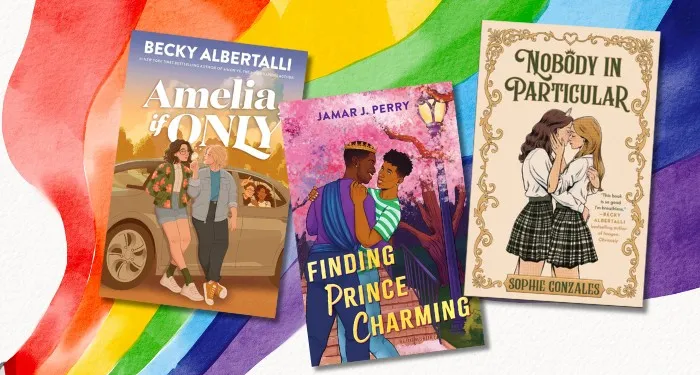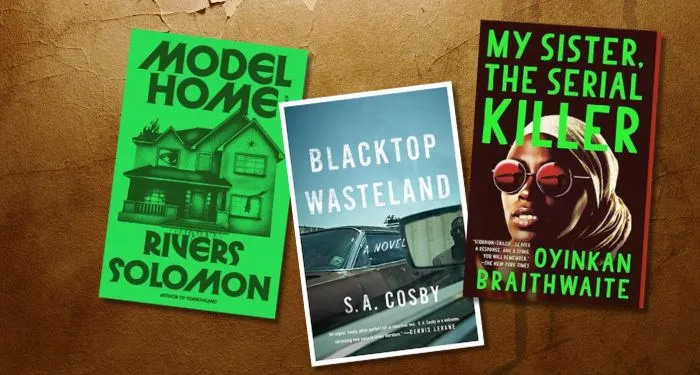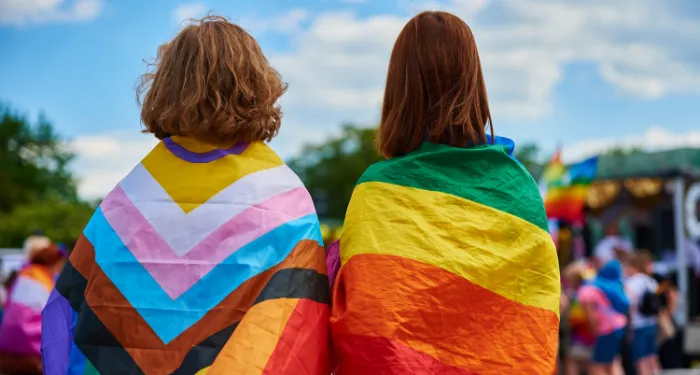For Authors
Every author dreams of seeing their stories brought to life on screen, but the journey from page to production is full of creative risks. This is true no matter the medium the story starts in, but some formats bring more complexity than others. Consider the recent video game TV adaptations of HBO’s The Last of Us and Prime Video’s Fallout. Converting the interactive nature of a game loved by millions into a television show that must appeal not only to diehard fans but also to viewers unfamiliar with the source material brings a unique set of challenges.
In this week’s blog, Ginger explores those two adaptations to examine what each one got right, and where they may have gone wrong. There is a delicate balance between honoring an original story and reshaping it for a new format. When done well, it can strengthen your bond with existing fans and draw in new ones. But when you lose sight of the heart of the story, the whole thing can unravel. For self-published authors, these examples offer valuable lessons about audience loyalty, creative compromise, and staying true to the world you’ve already built.
Many of us self-published authors don’t consider ourselves mere writers, but storytellers. And many of us hope that our words might one day travel beyond the printed page onto the screens of cinemas, televisions… and even computers!
Because like it or not, computer and video games have evolved to become a very powerful medium for telling stories in this day and age. In fact, some of the most powerful stories I’ve experienced in recent years have been navigated not by turning the page, but by wiggling the sticks on my PS5 controller.
I genuinely cried at the conclusion of Red Dead Redemption 2, BioShock Infinite, and Far Cry 4, and the ability to experience different endings depending on your in-game actions unlocked a whole new dimension of storytelling to me that I’d never experienced before outside the pages of a Choose Your Own Adventure novel.
If you’re anything like me, you might have spent similar hours lost in the worlds of video games—including the zombie-infested ruins of The Last of Us and the retro-futuristic wastelands of Fallout. If that’s the case, chances are you were pretty excited when you heard those particular games were being adapted into television shows on HBO and Amazon Prime.
When Hollywood comes knocking to turn our favorite games into TV shows, it’s like watching a beloved book get adapted into a movie: exciting, but nerve-wracking. Will they get it right? Will they honor the story we love?
Today, I want to dive into the rollercoaster of video game TV adaptations, focusing on the fan backlash against The Last of Us Season 2, the warm reception for Fallout, and what these cases can teach us writers about respecting our core audience while navigating the limitations of a new medium.
Video Game TV Adaptations: The Last of Us
Let’s start with The Last of Us. When HBO’s adaptation hit screens in 2023, it was a revelation. The show, based on Naughty Dog’s critically acclaimed game, followed Joel and Ellie’s journey through a post-apocalyptic world ravaged by a fungal infection. Fans praised Season 1 for its fidelity to the source material, with showrunners Craig Mazin and Neil Druckmann (the game’s co-creator) recreating iconic scenes and preserving the emotional gut-punch of the story.
It felt almost like playing the game again, but with Pedro Pascal and Bella Ramsey bringing a fresh approach to characters we already loved. Season 1 wasn’t perfect—some grumbled about fewer infected and tweaks to side stories—but it largely delivered on the promise of a faithful adaptation, earning a near-perfect Rotten Tomatoes score and 30 million viewers per episode.
Fast forward to April 2025, and Season 2 dropped, adapting the controversial The Last of Us Part II. This is where things got messy. Fans who’d been riding high on Season 1’s loyalty to the game felt blindsided by changes that, to them, broke an unspoken pact.
The game’s sequel is already divisive for its bold narrative choices (no spoilers here, but you know what I mean if you’ve played it). So, when the show veered further from the source material, the fanbase erupted. Let’s break down the key complaints, based on chatter from X and reviews floating around.
First, fans slammed the altered narrative structure. The Last of Us Part II uses a tight, player-driven point-of-view to lock you into Ellie and Abby’s perspectives, making every choice and consequence hit harder. Sure, that’s generally part of how a single-player video game is played, but a tight POV is often a great narrative choice no matter how you’re telling a story.
Season 2, however, introduces flashbacks and cuts to other factions, like the Scars and WLF, during Ellie’s Seattle journey, diluting the intense focus that made playing the game so immersive. One X user put it bluntly: “Tight POV storytelling is a huge part of the game… they’re abandoning that completely.”
Second, character arcs got a makeover. Abby’s introduction and motivations were reshaped, with some scenes feeling less raw than in the game. Fans felt these tweaks softened her complexity, making her less compelling (and making your desire to kill her less fervent.)
Finally, pacing was a sore spot. The game’s sprawling story was condensed into seven episodes, leading to rushed moments that didn’t land the same emotional weight. Reviewers noted that while the ensemble cast—Bella Ramsey, Isabela Merced, Kaitlyn Dever—shined, the show couldn’t capture the game’s singular magic.
These changes stung because they violated an unspoken promise between fans and creators. When you adapt a beloved game, especially one as story-driven as The Last of Us, fans expect you to treat the source material like a sacred text. Not because it’s perfect, but because it’s theirs.
We’ve invested hours sneaking past clickers, crying over cutscenes, and debating Joel’s choices on forums. The game’s narrative is a shared experience, a bond between player and creator. Season 1 honored that bond by sticking close to the script, even recreating dialogue verbatim. Season 2’s liberties with story restructures and character tweaks felt like a betrayal to us fans who showed up expecting to watch our game, not a reimagined version of it.
As one X post nailed it: “You cannot go wrong by adapting the lore as it is… KEEPING THE CRUX of the story is crucial.” When creators stray too far, they risk alienating the very audience that made the adaptation possible.
Video Game TV Adaptations: Fallout
Now, let’s pivot to Fallout, Amazon’s 2024 hit that’s been hailed as a masterclass in adaptation. Based on Bethesda’s post-apocalyptic RPG series, Fallout took a different tack from The Last of Us. Instead of retelling a specific game’s story, it crafted an original narrative set in the same Fallout universe that we explored in Fallout 3, 4, and New Vegas.
In the TV show, we find ourselves following vault-dweller Lucy, Brotherhood of Steel acolyte Maximus, and the ghoul Cooper Howard as they converge for a fiery climax at the Griffith Observatory. Fallout fans ate it up, and it’s not hard to see why. The show nails the game’s tone of dark humor, retro-futuristic weirdness, and moral ambiguity. From Pip-Boys to Power Armor, every detail feels ripped from the games, with details like RadAway bags and Vault-Tec ads sprinkled in as Easter Eggs for diehard fans like me. Critics also raved, with The Guardian calling the Fallout show “funny, self-aware and tense—an astonishing balancing act.”
What made Fallout click? It respected the source material’s essence without being shackled to it. The games don’t have a single canon story—each player’s choices shape the narrative—and the show’s original plot slots in neatly alongside them without contradicting any established lore. In fact, it even expanded that lore by adding a backstory that suggested Vault-Tec was responsible for “The Great War” and giving additional depth to ghouls through Cooper’s centuries-long story arc.
Fans on X gushed about spotting game references, with one saying, “The amount of times I went ‘Leonardo DiCaprio pointing at TV meme.’ So many great Easter eggs!”
By staying true to the world’s rules and vibe, Fallout delivered what fans craved: A show that felt like playing a new Fallout game. More importantly, unlike The Last of Us Season 2, Fallout didn’t break the unspoken promise it had made with players of the original games. Instead, it built on it.
What Can We Take From These Examples?
So, what’s the lesson for us self-published authors eyeing adaptations of our own work?
Well, first it’s important to acknowledge that television is a very different beast from video games, and some changes are inevitable to reflect that.
Games thrive on interactivity where players drive the story, whether it’s choosing dialogue in Fallout or stealth-killing in The Last of Us. TV is passive, so creators must streamline sprawling narratives, condense gameplay, and appeal to non-gamers as well as us die-hard fans.
The Last of Us Season 2, for all its flaws, made choices to suit a mainstream audience, like expanding side stories to flesh out the world. Fallout leaned on humor and action to hook newcomers while keeping gamers happy. These tweaks aren’t just practical, they’re necessary to make a show work on its own terms.
But here’s the rub: Fans like us are the beating heart of any adaptation. Amazon Prime managed to remember that, whereas HBO fell short.
We fans are the ones who’ll champion your show, spread the word on X, and buy the merch. Ignore us, and you’re toast. The Last of Us Season 2’s missteps show what happens when you stray too far from the core story fans love. Fallout’s success proves you can take risks—new plots, new characters—as long as you honor the world’s spirit.
As authors, we know our readers are our biggest advocates. If someone adapted your sci-fi epic or fantasy saga to screen, you’d want them to keep the soul of your story intact, right? It’s the same with games. Respect the source material, and you’ll keep faithful fans on your side even as you bring in a new audience.
In the end, video game adaptations are like trying to bottle lightning. The Last of Us Season 1 and Fallout showed it’s possible to break the “video game curse” by loving the source material as much as fans do. Season 2 of The Last of Us stumbled by forgetting that promise, but it’s not a death sentence. There’s a third season coming to win fans back (and this time, it won’t be limited by the narrative of a prior video game.)
For us self-published authors, the takeaway is clear: if your work ever hits the screen, fight for its heart. Creative changes are part of the game, but never lose sight of us fans who got you there in the first place. We’re the ones who’ll carry your story forward, whether it’s on a page, a console, or a TV screen.
One thing is certain, though. As much as we might complain about The Last of Us Season 2, the craft of adapting video games for screen and cinema has evolved into something much better than the 1990s adaptations of Super Mario Bros. and Street Fighter. Video games are legitimate tools for telling stories now; and TV and cinema adaptations help share those stories with a much broader audience.
But that’s just my take! What do you think? Are you a gamer? What have been the most impactful stories in games you’ve played? And are there any other notable video game TV adaptations that have got things right about the story they’re based on? Let me know in the comment section below!
Share this blog
About the Author

Ginger is also known as Roland Hulme - a digital Don Draper with a Hemingway complex. Under a penname, he's sold 65,000+ copies of his romance novels, and reached more than 320,000 readers through Kindle Unlimited - using his background in marketing, advertising, and social media to reach an ever-expanding audience.

















 English (US) ·
English (US) ·